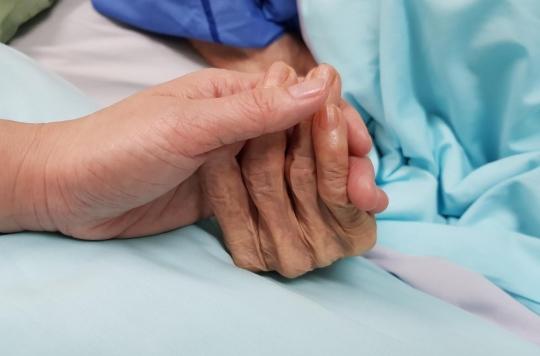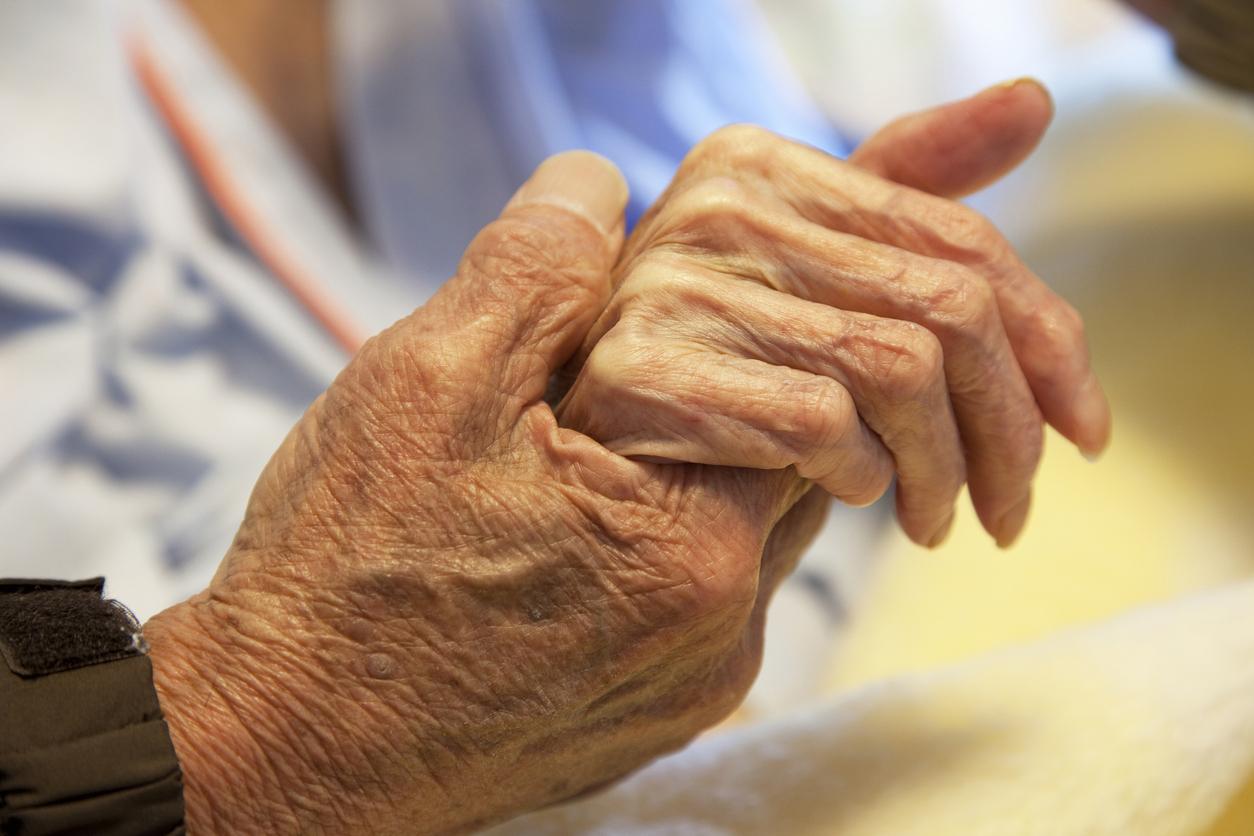Manifesto, petition, open letter… many health professionals support Jean Méheut-Ferron, general practitioner indicted for manslaughter for having prescribed Midazolam to dying patients. The debate on support for end-of-life patients is coming back to the fore.

The right for city doctors to administer sedatives to support end-of-life patients. This is the request of Jean-Paul Hamont, president of the Federation of Doctors of France. While doctor Jean Méheut-Ferron was banned from practicing and indicted on November 13 for manslaughter for having prescribed Midazolam, a powerful sedative normally reserved for hospital use, to dying patients, his colleague launched mi -December a manifesto to support it. Entitled “The manifesto of the 343 doctors”, in reference to that of the “343 sluts” on the voluntary interruption of pregnancy of 1971, this text gathered more than 400 signatures. A petition titled “Support for Méheut-Ferron doctors” is also online.
Jean-Méheut Ferron, who worked in Angerville-la-Martel, in Seine-Maritime, is not the only one to have been indicted. His wife, an anesthesiologist, was also indicted for complicity and breach of trust. In the petition, his colleagues evoke “a humane, conscientious and passionate doctor who does his job with boundless ardor and dedication”. On social networks, the support posts are also very numerous.
If the principal concerned admitted having given Midazolam to his patients, he assures that this was not part of a process of euthanasia. “By using this drug, it was neither to hasten death, nor to prolong the patient unnecessarily. It was really, in the strict sense, an accompaniment which allows the patient to stay at home and also his family to be able to live as peacefully as possible these moments which are always difficult”, he defended himself in a interview at Paris-Normandy in December.
“It’s called care”
“Midazolam is widely used in hospitals for anesthesia or end of life, to accompany end of life in addition to morphine. However, in town, we first have morphine, we have anxiolytics but we don’t have Midazolam, which is a known and recognized product for palliative care and to properly support the end of life, so that’s is a pure scandal”, explains Jean-Paul Hamon to BFM TV this Monday, January 6. “We haven’t all used Midazolam, because it’s very difficult to get it in town, but we’ve all been confronted with the end of life and unfortunately, given the therapeutic possibilities we’re given in city, we have not always respected the law, without necessarily using Midazolam”, he continues.
Saturday January 4, the doctor had already expressed himself in the columns of the Parisian. “A lot of people do the same. They were lucky not to be denounced by a malevolent colleague or sued by the family. If it were necessary to prohibit the practice of all general practitioners who take care of the end of life, without being completely in the rules, France would be a medical Sahara”, he declared.
Hamon therefore wants to lift the suspension from practicing general practitioners who administer sedatives to end-of-life patients. He also calls for authorization to use sedatives such as Midazolam because they relieve pain and allow patients to “go smoothly to a palliative care service or during home hospitalization (HAD)”. “There are patients who live in regions where there is no HAH service or who do not want it. What about patients with terminal stage incurable cancers, old people who want to die at home but whom morphine can’t even calm down? We leave them in excruciating pain and we tell the helpless family that nothing can be done? It’s unbearable”, he is alarmed.
Finally, like Jean Méheut-Ferron, he distinguishes between administration of Midazolam and euthanasia. “It’s an additional step in pain management. When a patient wants to die at home, his departure must be as dignified as possible. It’s called care, ”he says.
Open letter to Agnès Buzyn
An opinion widely shared in the profession since, in addition to the many signatures of the petition and the manifesto, the National Union of Liberal Physicians wrote a open letter to the Minister of Health on this subject at the beginning of December.
“Our colleague, who has been involved for a long time in palliative care and in supporting end-of-life patients at home, is criticized for having used a product (Midazolam: Hypnovel°) reserved only for establishments of health, provided by his wife. The local press, relayed by the national media, echoed this situation with great fanfare (‘Doctor banned from practicing, 7 bodies exhumed’). We denounce this unacceptable orchestration of communication on such a sensitive subject. Basically, this situation is painfully demonstrative of the difficulties that are ours in the exercise of our profession and more specifically in the support of our patients and their families”, it is written.
And the doctors directly challenge Agnès Buzyn: “We are all doctors who respect the regulations but there are situations where we have to act in conscience. Faced with an identical situation, Madam Minister, dear colleague, what attitude would you have adopted? What would be your opinion and your advice to liberal doctors who use this molecule reserved for establishments?
“The collegiality of the decision”
At present, city doctors can legally accompany a patient by deep sedation but under very strict conditions. “One of the fundamental principles is the collegiality of the decision. The practitioner who prescribes sedation must have made his decision at the end of a collective procedure and having made sure of the will of the patient”, explains to BFMTV the lawyer Sophie Garceron, specialist in the law of medical responsibility. . In particular, the patient can express his wishes by writing advance directives.
From now on, general practitioners would therefore like to be able to prescribe the sedative and administer it when they deem it necessary.
.














